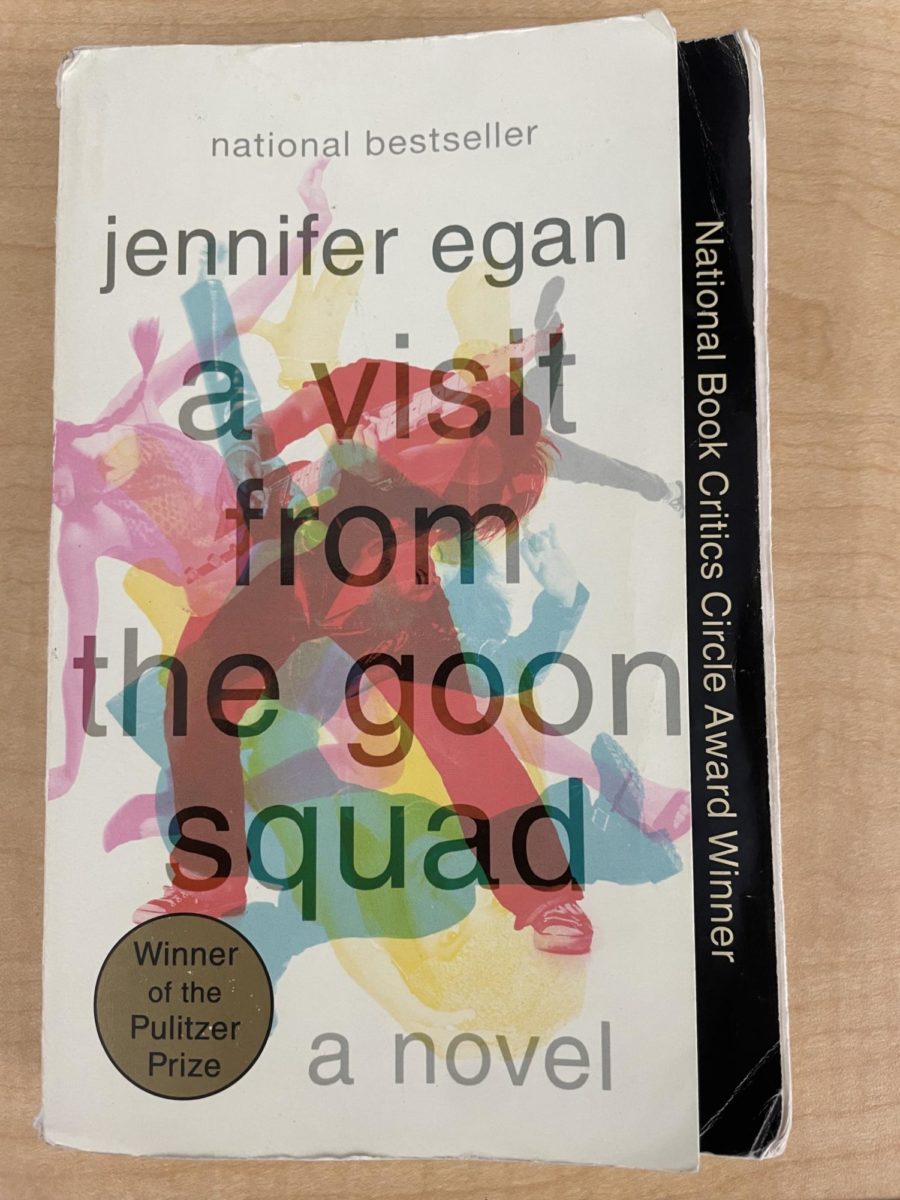This past summer, CCES students taking AP Literature were required to read 3 critically acclaimed books: Things Fall Apart, a contemporary piece of African literature by Chinua Achebe; A Doll’s House, a 19th-century play by Henrik Ibsen; and A Visit From The Goon Squad, a contemporary 21st-century novel by Jennifer Egan.
While summer work is generally not enjoyed by most, no book was criticized more among AP Literature students as A Visit From The Goon Squad. The novel does not follow a traditional structure, rather, it follows individual characters one chapter at a time, with overlaps between the parallel stories throughout. This idea may sound appealing, but the stories themselves are irredeemable.
Every character has serious mental health issues. Several attempt suicide and the windows into their minds are truly horrifying. Rob, one of the suicidal characters, narrates in the second person how he slit his wrists. His mental health problems are seen clearly when he jumps into the East River naked and his “mind pulls away as it does so, easily, so often, without your even noticing sometimes…”
Four of the male characters are perverts to varying degrees, and one of them is significantly worse than the rest.
Jules, a journalist for a tabloid-esque publication, is the ultimate downfall of the book. Until his chapter, I was willing to trudge through and have an open mind. However, that chapter is a story, a description, that should never have left the mind of the author. Jules meets a young actress for lunch and sexualizes her from the start. He convinces her to walk through Central Park with him, then proceeds to force himself on top of her and attempt to rape her, describing how he wants to “‘f— her to death” and ‘f— her brains out.’”
Reading this, I had a strong emotional reaction, and recently re-reading it out loud, I could not keep my voice steady. Furthermore, the author victim-blames the actress to a degree: Kitty writes an apology letter to the perpetrator lamenting her part in his “‘emotional breakdown’” and for her act of self-defense in stabbing him, in an attempt to redeem him. In the real world, the journalist’s reputation and career would be ruined forever and for good, as he should be. In Goon Squad, the author even attempts to redeem Jules in a separate chapter.
Jules isn’t the only abusive figure in the book. Bennie, one of the more central figures, sexualizes his young assistant and describes his erectile dysfunction issues. Lou, who is seen in several different parts of his life, seduces (one could also say “grooms”) a much younger woman the same age as his son and forces her to perform sexual acts in public. Lars, a man whom one of the main female characters, Sasha, meets, also forces her to perform sexual acts in return for money when she runs away from home to Italy.
There is a time and place for literature that includes such topics, especially in nonfiction to tell a real story of a real person who suffered. If this was nonfiction or had any sort of meaning about the problems with society, it could have the potential to have valuable ideas and meaning. However, this book is simply fiction. I assume the story originated in Egan’s brain- which I would argue raises serious questions about her character and mental health.
I was not the only student disturbed by this despicable story.
Fellow AP Literature student Ciarán Greer said “Goon Squad is like eating a bad hamburger. It’s none of the substance and all of the grease. I struggle to find the reason why we read a book with so many unnecessary descriptions of traumatic experiences that could impact students who have dealt with similar events. There’s no redeeming factor or moral of the story in a book so focused on showing the dark side of life.”
Not only is it vulgar and difficult to read, the book makes little sense. It doesn’t have chronological order, and for many of the chapters, it’s impossible to tell who’s speaking. If I didn’t know better, I would have thought that the author is simply not human. The characters don’t seem attached to reality, living in their heads and making decisions with no apparent rational basis.
Another AP Literature student, senior Lily Thomas, said “I think after we had class discussions I liked it a little bit more, but when I was reading it it was just really hard to follow, and I felt like the subject matter just oftentimes made me really, really confused, and I wondered why the heck we were reading this, so I don’t know, I didn’t love it, it wasn’t cohesive, I didn’t think it was well written, and, it was a little… jank… for lack of a better word.”
When asked about Jules, Thomas said, “That kind of like came out of nowhere, and in the Stephanie chapter they referenced his… rape and that’s why he went to prison, but I think that it just felt so out of place and I felt like it did not need to be included in the book whatsoever. And like you can say… ‘oh it goes with the theme’ or whatever, but like come on… it did not need to be included.”
Mr. Jacobssen, the current AP Literature teacher, shared his perspective as an English teacher.
“I think that A Visit From The Good Squad is a rich, complicated, and ambitious exploration of humanity’s relationship with the process of aging and the passage of time. As the teacher of the AP Literature course, I think that Goon Squad has quite a lot of real value, especially considering that the novel gives us an opportunity to examine a variety of narrators, characters, settings, points of view, and structures.”
“I think that A Visit From The Goon Squad performs a particularly difficult feat in literature – which is to present a series of flawed characters who experience a variety of personal, professional, and criminal nadirs as (in some cases) capable of – as one of your classmates noted – ‘flipping the record’ and finding a kind of redemption – or even a rebirth. I think that if Egan has achieved success in Goon Squad, it is based less on the ambitious (and admittedly difficult structure) and more on presenting a slate of characters that fall squarely within Walt Whitman’s classic assessment of humanity – we all ‘contain multitudes.’ Egan gives us some characters who say and think and DO terrible things – but she asks us to consider the possibility of redemption over time. This paradigm – one in which we encounter and process the humanity of characters with whom we disagree or even hate – is one of the great joys and the great challenges of reading books.”
While redemptions and rebirths are possible in life for sinful people, I do not find these characters redeemable. In order for redemption to happen, there must be a repentance of wrongdoing and an active attempt to change based on the evil actions. These characters do not try to change, and I fail to see examples of acknowledging the past in regret and remorse, especially in the abusive characters.



















